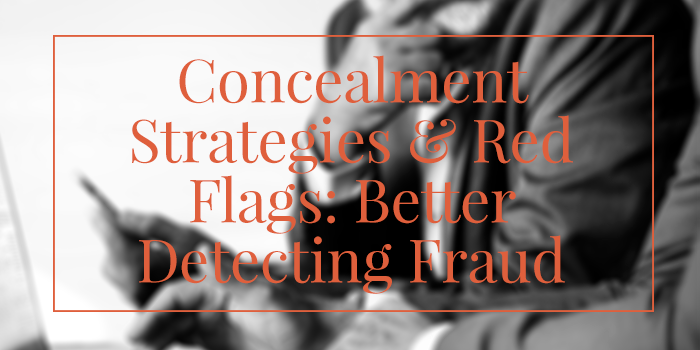This story is about a passthrough scheme. It is my opinion that most large companies have one of more pass-through schemes occurring. What makes it difficult to detect or prevent these schemes is that the scheme will comply with all of your controls. Your company has received the goods or services. Therefore, your ability to detect these schemes is predicated on your understanding of how these schemes occur and what they look like.
Fraud Auditing, Detection, and Prevention Blog
Anatomy of a Real-life Shell Company Pass-Through Scheme
Mar 20, 2024 11:39:15 AM / by Leonard W. Vona posted in Fraud Data Analytics, Fraud Risk Identification, ...
Examining the Words the Audit Profession Uses to Describe Responsibilities
Apr 19, 2023 5:17:13 PM / by Leonard W. Vona posted in Fraud Data Analytics, Fraud Auditing, ...
This is the second of three blogs looking at the state of the auditing profession. In the first blog, we looked at what has changed as companies have grown and gone global. In this article, we’re considering the use of words and the significance of precision.
Forensic Auditing Vs. Forensic Investigation of Fraud
Apr 20, 2022 5:17:42 PM / by Leonard W. Vona posted in Litigation, Fraud Auditing, ...
Check out the answers to last month's Trivia Quiz and why it matters for making our profession the number one reason for fraud detection:
How much more money is laundered in fiat currencies than in cryptocurrency?
400 times more money is laundered in fiat currencies than in cryptocurrency.
What percentage of system-generated alerts against money laundering resulted in false positives?
95% of system-generated alerts against money laundering resulted in false positives.
According to money laundering statistics of 2020, what percent of laundered money goes undetected?
90% of laundered money remains undetected, according to money laundering statistics of 2020.
Source: Legal Jobs Blog
How to Use the Red Flag Concept in Fraud Auditing
Feb 21, 2022 8:00:33 AM / by Leonard W. Vona posted in Fraud Risk Statements, Fraud Schemes, ...
Last month’s trivia questions and answers
Which country offers an on-line fraud quiz to test their citizen's awareness to fraud?
Canada: If your country offers such a quiz, please let me know.
What was the first recorded fraud?
The first recorded fraud scheme is from 300 B.C. in Greece.
Concealment Strategies & Red Flags: Better Detecting Fraud
Apr 24, 2018 1:00:00 PM / by Leonard W. Vona posted in Concealment Strategies, Red Flags, ...
As per the commonly understood fraud triangle there, are three typical components why someone would commit a fraud scheme: motive, opportunity, and rationalization. While motive and rationalization are factors that could be limited to individual behavior and psychology, opportunity is something your internal controls can and should account for.
Within rationalization, anyone involved in a fraud scheme needs to have the ability and opportunity to conceal and commit fraud. There is a direct relationship between having the opportunity to commit fraud and having the ability to conceal the fraud and so auditors need to consider both opportunity and the ability to conceal in the design of an audit plan.
Knowing which common concealment strategies might have been deployed by any given fraud scheme is an essential part of any approach to preventing and detecting fraud. Let’s examine concealment in more detail.








